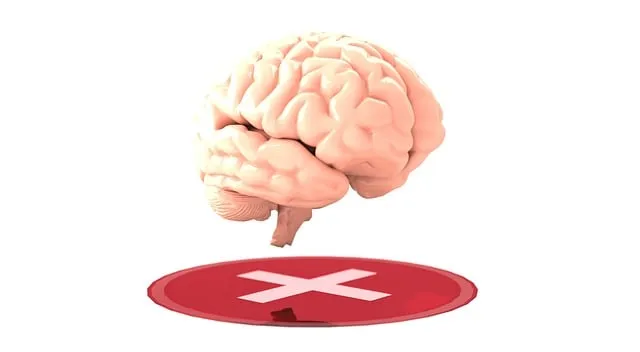Boulder Kaiser Permanente addresses stress, a common modern issue, through tailored workshops combining positive thinking, conflict resolution, and social skills training. Their holistic approach includes comprehensive mental health coverage, community engagement, and destigmatization campaigns. Workshops utilize guided meditation, mindfulness exercises, and structured journaling to actively engage participants. Facilitators act as guides, fostering open dialogue and providing personalized tools for stress management. Success is measured through quantitative and qualitative assessments, tracking changes in stress levels, mood, coping mechanisms, and social support networks. Boulder Kaiser Permanente's mental health coverage integrates these comprehensive programs for lasting positive outcomes.
“In today’s fast-paced world, stress has become an all-too-common companion. Recognizing this, Boulder Kaiser Permanente offers comprehensive mental health support through innovative workshops designed to equip individuals with effective stress management tools. This article delves into the growing importance of such programs, exploring common stressors and their impact on well-being. We examine Boulder Kaiser Permanente’s unique approach, providing insights into designing engaging workshops and facilitating key strategies for optimal participant outcomes. Additionally, we discuss evaluation methods to measure the success of these programs, emphasizing the value of mental health coverage in our modern society.”
- Understanding Stress: Unveiling Common Triggers and Effects
- Boulder Kaiser Permanente's Approach to Mental Health Support
- Designing Effective Stress Management Workshops
- Key Strategies for Workshop Facilitators
- Measuring Success: Evaluating the Impact of Stress Management Programs
Understanding Stress: Unveiling Common Triggers and Effects

Stress is a ubiquitous aspect of modern life, yet its understanding remains crucial for effective management. At Kaiser Permanente Boulder, we recognize that stress can stem from various sources, including work pressures, personal relationships, financial worries, and health issues. By shedding light on these triggers, our workshops equip individuals with the tools to identify and tackle stressors proactively.
Common effects of prolonged stress include physical symptoms such as headaches, fatigue, and sleep disturbances, as well as psychological impacts like anxiety, depression, and difficulty concentrating. To counteract these, our programs delve into strategies for cultivating positive thinking, mastering conflict resolution techniques, and enhancing social skills training—all underpinned by the broader goal of fostering resilience and promoting a healthier, more balanced lifestyle.
Boulder Kaiser Permanente's Approach to Mental Health Support

Boulder Kaiser Permanente takes a holistic approach to mental health support, prioritizing both professional care and community engagement. They offer a range of services tailored to individual needs, from counseling sessions to stress management workshops. In addition to their comprehensive mental health coverage, they actively promote public awareness campaigns focused on destigmatizing mental illness and fostering open conversations.
The organization leverages effective communication strategies to connect with diverse communities, ensuring that support is accessible to all. They also encourage self-care practices through initiatives like Mental Wellness Journaling Exercise Guidance, empowering individuals to take an active role in their mental well-being.
Designing Effective Stress Management Workshops

Designing effective stress management workshops requires a multi-faceted approach tailored to the unique needs and constraints of Boulder Kaiser Permanente’s mental health coverage recipients. Incorporating interactive activities, such as guided meditation and mindfulness exercises, ensures participants actively engage with the material. These practices, backed by scientific research on their benefits for mental wellness, can be seamlessly integrated into the workshops through structured journaling prompts that encourage reflection.
Beyond individual coping mechanisms, effective workshops should foster a sense of community, acknowledging that stress is a shared experience. Public awareness campaigns highlighting the importance of mental health and innovative exercises like group discussions or creative outlets can strengthen bonds among participants. For mental health professionals involved in risk management planning, these workshops offer an opportunity to not only educate their patients but also gain insights into emerging best practices, ultimately enhancing patient care and outcomes within the Boulder Kaiser Permanente network.
Key Strategies for Workshop Facilitators

Workshop facilitators play a pivotal role in helping participants manage stress and improve their mental wellness. Key strategies for these professionals include cultivating empathy to connect with attendees on a personal level, fostering open communication, and providing practical tools tailored to individual needs. By employing conflict resolution techniques, facilitators can navigate sensitive discussions, ensuring a safe and supportive environment.
Incorporating interactive activities, case studies, and role-playing exercises allows for engaging learning experiences. Facilitators should also be well-versed in the latest research on stress management, leveraging resources like those offered by Boulder Kaiser Permanente’s mental health coverage to provide evidence-based practices. Ultimately, effective facilitators empower participants with skills to navigate stress, fostering a sense of resilience and improved overall mental wellness coaching.
Measuring Success: Evaluating the Impact of Stress Management Programs

Measuring success is a crucial aspect of evaluating the impact and effectiveness of stress management programs, especially when considering options like Boulder Kaiser Permanente mental health coverage. By implementing comprehensive assessment tools, organizations can track progress and gauge the overall well-being of participants. This involves collecting quantitative data through surveys and feedback forms to understand changes in stress levels, mood, and general mental wellness. For instance, tracking attendance rates, pre-post program comparisons, and participant satisfaction scores provide valuable insights into the success of the initiative.
Additionally, qualitative methods such as one-on-one interviews or focus groups can offer deeper perspectives on how participants are benefiting from the program. This includes exploring improvements in coping mechanisms, enhanced social support networks, and better stress reduction methods. Incorporating Mental Wellness Coaching Programs Development alongside Social Skills Training and Stress Reduction Methods can lead to more significant and lasting positive outcomes for individuals seeking mental health coverage and support within their communities.
Stress management workshops, such as those offered by Boulder Kaiser Permanente, play a pivotal role in empowering individuals to take control of their well-being. By understanding stress triggers and implementing effective strategies, these programs can significantly enhance the mental health coverage provided by healthcare organizations like Kaiser Permanente Boulder. Through tailored facilitation and meaningful evaluation, stress management workshops become powerful tools for fostering resilience and overall wellness within communities.






